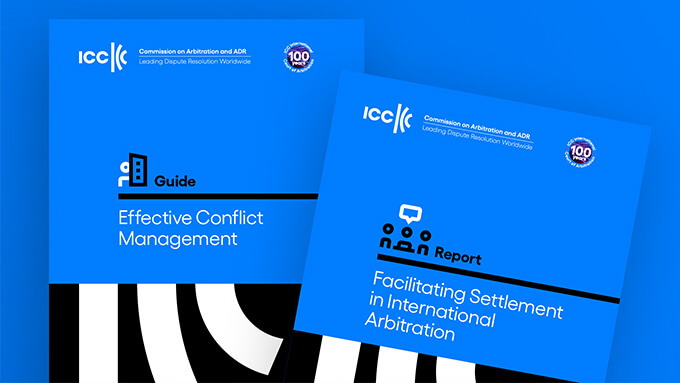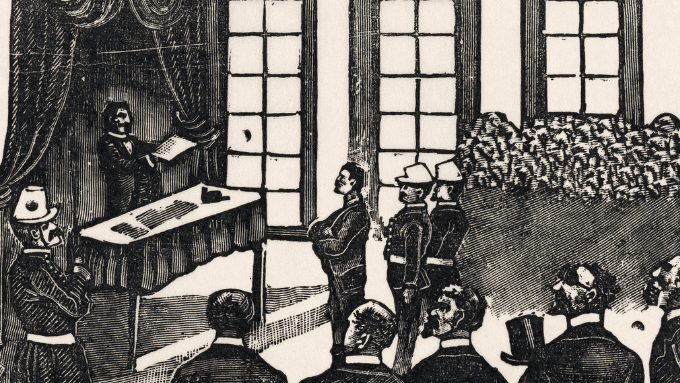Interaction between State Courts and Arbitral Tribunals in Taking of Evidence and Document Production
Introduction
Taking of evidence and document production is one of the most debatable subjects in international commercial arbitration due to different legal and cultural backgrounds of the parties and their legal counsels. Since the chances of success mainly depend on whether or not a party can prove its case, it is crucial for the parties to choose the best procedure for their dispute.
When it comes to determining the procedure, the parties may choose common law or civil law jurisdictions depending on the nature of their disputes, they may draft their own arbitration procedure, or they may refer to internationally accepted rules. If the parties fail to determine such agreement, the applicable procedure will be determined as per the laws of the seat of arbitration.
Taking of Evidence and Production of Documents in International Commercial Arbitration in Turkey
The Turkish International Arbitration Law (“TIAL”) is the applicable law in Turkey setting forth the principles and procedures concerning international commercial arbitrations. The TIAL shall be applicable, only if; (i) the dispute has a foreign element and Turkey is the seat of arbitration, or (ii) the parties agreed on the TIAL as the governing law of arbitration.
Article 8 of the TIAL provides for the following with regard to the determination of procedural rules: (i) parties are free to agree on the procedure to be followed by the arbitral tribunal in conducting the proceedings; (ii) parties may make reference to any law in the determination of such procedure; (iii) parties may make reference to international (IBA Rules or Prague Rules) or institutional (ICC Rules, ITOTAM Rules, ISTAC Rules, etc.) arbitration rules; (iv) procedure agreed upon by the parties is subject to the mandatory provisions of the TIAL; (v) if there is no such agreement between the parties, an arbitral tribunal shall conduct the proceedings in accordance with the provisions of the TIAL; and (vi) parties shall have the same rights and powers, meaning that each party shall be accorded full opportunity to assert their petitions and defenses.
Most Commonly Used Procedural Rules and Their Approach on Seeking Court Assistance
Almost all institutional arbitration rules regulate procedural rules as to evidence. Only a few of them, however, refer to court assistance in terms of taking evidence.
For instance, Article 25 of the ICC Rules provides that the arbitral tribunal shall proceed within as short a time as possible to establish the facts of the case by all appropriate means, and at any time during the proceedings, the arbitral tribunal may summon any party to provide additional evidence.
Likewise, Article 29 of the ISTAC Rules also states that the arbitral tribunal shall consult all means it deems to be appropriate in order to establish the facts of the case, and the arbitral tribunal may request the parties to submit any additional information and documents during the course of the proceedings.
As to court assistance, the ITOTAM Rules are one of the few that explicitly mentions such interaction. Articles 26 through 30 of the ITOTAM Rules state that the arbitral tribunal may ask the parties to submit their evidence, hear witnesses, conduct discovery and appoint experts. As per Article 30, the parties may also apply to any competent judicial authority for interim or conservatory measures before the file is transmitted to the arbitral tribunal or, in certain circumstances, after receipt of the file by the arbitral tribunal.
Article 27 of the UNCITRAL Rules (2006) also adopts a similar approach by providing that the arbitral tribunal, or a party with the approval of the arbitral tribunal, may request from a competent court of state assistance in taking of evidence. The court may execute the request within its competence and according to its rules on taking evidence.
TIAL’s Approach on Seeking Assistance from a Competent Court for Taking of Evidence
Similar to the ITOTAM Rules and UNCITRAL Rules, the TIAL also regulates the assistance of the court in taking of evidence and production of documents. The TIAL provides for two different options through which to seek assistance from a competent court; (i) for interim measures of protection and interim attachments (Article 6), and (ii) for taking of evidence and production of documents (Article 12/B).
Interim Measures of Protection and Interim Attachments (Article 6)
According to Article 6, “If a party does not comply with the arbitral tribunal’s interim measure or attachment, the other party may request the assistance of the competent court for taking of an interim measure of protection or an interim attachment.”
One should keep in mind that under the TIAL, even if the arbitral tribunal has the power to decide on interim measures or interim attachments for the parties, the arbitral tribunal is not entitled to grant interim measures or interim attachments that are required to be enforced through execution offices, or to be executed through other official authorities, or which bind third parties.
Therefore, under the TIAL, the parties' right to request interim measures of protection or interim attachments to a court in accordance with the Code of Civil Procedure (“CCP”) is always reserved. According to Article 393(1) of the CCP, the party who sought the interim measure must demand the execution of such measure from the relevant enforcement office, or from the court itself, within one week from the decision date. Otherwise, the interim measure shall be deemed revoked.
It is also important to understand the approach the Court of Cassation has adopted for the application of the TIAL and CCP for taking interim measures of protection or interim attachments.
In one of its decisions, the 6th Chamber of Court of Cassation held that it is possible to seek interim measures from a competent court even if the arbitration award has not yet been enforced. According to the Court, the TIAL gives the opportunity to request, from a competent court, that interim measures be taken before and during the arbitral proceedings and, thus, it should also be possible to seek the court’s assistance after the arbitral proceedings in the same manner. The lack of such an enforcement decision alone does not constitute a legal barrier to request interim measures[1].
As to the extent of interim measures, the 2nd Chamber of Court of Cassation reversed the judgment of the court of first instance on the grounds that it is possible to decide on interim measures only concerning the subject of the dispute. The Court of Cassation held that it is incorrect to take interim measures on a property of the defendant, if such property is not the subject of the main dispute[2].
Taking of Evidence and Production of Documents (Article 12/B)
As per Article12/B, “The parties shall provide their evidence within the term that is determined by the arbitrators. The arbitral tribunal may request from the competent court of first instance assistance in taking of evidence. In such case, the provisions of the Code of Civil Procedure shall be applicable.”
Under this Article, if the arbitral tribunal needs assistance in taking of evidence and in production of documents, it may request from the national courts to issue an order to that effect. In such case, the applicable law will no longer be the TIAL, but rather the CCP. However, obtaining documents from the parties to the arbitration or from third parties might propose a challenge under the CCP.
Under the CCP, Turkish courts do not have the power to force the parties to submit evidence or produce documents against their will[3]. According to Article 220(3) of the CCP, if a party fails to comply, without showing cause for its non-compliance with a court decision ordering the same party to submit evidence or to produce a document within a prescribed time, the court shall have the discretion to assume the other party’s statement concerning the content of the evidence to be true and accurate. This provision creates the same adverse effect that the IBA Rules impose on the party who fails to produce evidence.
The decisions upheld by the Court of Cassation are very clear about the application of Article 220(3) of the CCP. In one of its decisions, the 22nd Chamber of the Court of Cassation reversed the decision of the trial court due to the fact that the trial court failed to apply Article 220(3). The 22nd Chamber, in its decision, did not give the trial court the discretion to decide whether or not it should apply Article 220(3), but rather decided that it must do so unless it is considered to be inadequate inspection or against due process[4].
The 15th Chamber of Court of Cassation also held, in one of its decisions, that if one of the parties restrains the court to compare and assess all of the relevant evidence that is required for the parties to prove certain facts by not making them available without cause, then it will be deemed as if the non-complying party accepted the evidence submitted by the other party[5].
Consequences of Non-Compliance of a Court Order
There are both civil and criminal consequences for non-compliance of a court order under Turkish law.
On July 11, 2018, the Constitutional Court repealed Article 398 of the CCP that provided disciplinary imprisonment from 6 to 12 months for persons who did not respect a court-ordered interim measure[6]. In other words, starting from November 20, 2019, Article 398 will no longer be applicable and, thus, there will be a legal loophole for non-compliance in the CCP.
When a party does not abide by a court decision, it is always possible to seek assistance from execution officers who have the power to enforce court orders as a civil law remedy. If the execution officer, however, fails to honor a court order, a criminal action may be initiated on the grounds of neglecting official duty or misconduct under Article 257 of the Turkish Criminal Code.
As to taking of evidence and production of documents, the court is entitled to make certain inferences on the actions of the non-complying party. In other words, if one of the parties fails to submit the evidence or documents so ordered by the court, then it shall be deemed as if the documents would have an adverse effect on the non-complying party.
In addition to the above, as per Article 221 of the CCP, third parties are obliged to produce a court-ordered document, and therefore, if a third party fails to produce such document, then the court shall request a third party’s witness testimony concerning the document. If the third party also fails to testify, accordingly, then the court may impose a disciplinary fine on the non-complying third party.
Conclusion
Due to the consensual nature of international arbitration and the principle of party autonomy, parties to arbitrations have the freedom to determine the arbitration procedure to be applied to their dispute. If the parties fail to determine such agreement, the applicable procedure will be determined as per the procedural laws of the seat of arbitration. The TIAL is the applicable law concerning international commercial arbitration where a dispute has a foreign element and the place of arbitration is determined to be in Turkey, or the parties opt for its application to their dispute.
The TIAL provides for court assistance in two different scenarios: (i) for interim measures of protection and interim attachments and (ii) for taking of evidence and production of documents. Pursuant to the TIAL, with respect to both scenarios, the national court will apply the CCP as the applicable law. Under the CCP, however, the courts do not have the power to force the parties to submit evidence nor to produce documents against their will. If the party fails to provide such evidence despite a court order, Turkish law provides different remedies that can be sought, such as; the evidence being considered to have an adverse effect as is the case with the IBA Rules; disciplinary fine on the non-complying third party; seeking assistance from execution officers who have the power to enforce court orders; and -if the execution officer fails to proceed accordingly- initiating a criminal action against the officer on the grounds of neglecting official duties or misconduct.
[1] 6. HD, E. 2014/3906, K. 2014/4941, 14.04.2014.
[2] 2. HD, E. 2016/14961, K. 2017/129, 10.01.2017.
[3] Gökyayla, Cemile Demir: Milletlerarası Tahkimde Belge İbrazı, İstanbul 2014, p. 201.
[4] 22. HD, E. 2017/17243, K. 2018/23664, 06.11.2018.
[5] 15. HD, E. 2018/2696, K. 2018/3431, 09.09.2018.
[6] Constitutional Court, E. 2018/1, K. 2018/83, 11.7.2018.
All rights of this article are reserved. This article may not be used, reproduced, copied, published, distributed, or otherwise disseminated without quotation or Erdem & Erdem Law Firm's written consent. Any content created without citing the resource or Erdem & Erdem Law Firm’s written consent is regularly tracked, and legal action will be taken in case of violation.
Other Contents

Emergency arbitration addresses the need for interim protection before the arbitral tribunal is constituted in institutional arbitrations. Arbitral institutions establish short timeframes to ensure parties can obtain interim relief quickly. For example, the International Chamber of Commerce (“ICC”) requires that the emergency...

International arbitration remains the preferred mechanism for resolving complex cross-border disputes. Yet despite its advantages—neutrality, enforceability, flexibility—arbitration is frequently criticized for being too slow, too expensive, and too procedurally heavy. Often, parties proceed through hearings and...

For arbitral awards rendered in international commercial arbitration to produce legal effects in foreign jurisdictions, they must be subjected to proceedings for “recognition” and “enforcement.” This process is governed by the New York Convention as well as by the provisions of the Law on Private International Law...

Arbitrability, the determination of whether a specific subject matter can be resolved through arbitration, constitutes a fundamental aspect of arbitration within the scope of international commercial dispute resolution. This concept draws a delicate balance between party autonomy—a fundamental principle of arbitration...

The recognition, enforcement, and annulment of foreign court and arbitral awards in Türkiye are processes in which public policy emerges as one of the most critical criteria for review, both in theory and in practice. The Court of Cassation decisions determine the direction of case law regarding the scope and...

As is well known, the action for annulment of objection is a special type of lawsuit regulated under Article 67 of the Turkish Execution and Bankruptcy Law No. 2004 (“EBL”). The primary objective of this action is to nullify a debtor’s objection to execution proceedings. Despite its procedural function of facilitating...

On 16 December 2024, the London Court of International Arbitration (“LCIA”) released its third batch of challenge decisions covering the period from 22 July 2017 to 31 December 2022. The LCIA has also issued a detailed commentary that identifies key legal themes and analytical trends, offering practitioners...

The International Chamber of Commerce (“ICC”) has published its report on the dispute resolution statistics for 2023 (“Report”) , shedding light on the evolving landscape of international arbitration...

Syndicated loans undoubtedly hold a significant position among global financing models. In 2023 alone, 3,655 syndicated loans were provided to companies in the US, with their total value reaching USD 2.4 trillion...

Preliminary attachment refers to the temporary seizure of a debtor's assets to secure a creditor's claim. While it serves as a vital instrument for safeguarding the rights of creditors, it is subject to specific and stringent conditions under Turkish law to prevent any potential misuse...

One of the most important reasons for parties to choose arbitration is the opportunity to freely choose their arbitrators. This freedom granted to the parties also distinguishes arbitration from proceedings before state courts, where the parties are deprived of the power to determine the judges who will conduct the...

The 6th Civil Chamber of the Court of Cassation ruled on October 12, 2022, that national courts have jurisdiction over objections to provisional measures in international arbitration disputes...

The declaration of intent to resolve disputes through arbitration is the fundamental constituent element of an arbitration agreement. To speak of a valid arbitration agreement, the parties' intention to arbitrate must emerge in a way that leaves no room for dispute...

In the wake of the evolving dynamics of commercial transactions, the Netherlands Arbitration Institute Foundation (NAI) announced new arbitration rules . 2024 NAI Arbitration Rules are in force as of 1 March 2024 and will be applicable on proceedings filed on or after this date...

With the global shift to online activities, domain names play a crucial role in identifying businesses. It is more common than ever for a domain name to be registered that is confusingly similar to a trademark or service mark...

The ICC Commission on Arbitration and ADR (“Commission”) published a new guide and report with the aim to increase awareness on alternative dispute resolution (“ADR”) mechanisms to prevent disputes and strengthen the relationship between all stakeholders.The Guide on Effective Conflict Management...

Mergers and Acquisitions (“M&A”) are restructuring of companies or assets through various types of financial transactions, such as mergers, acquisitions, purchase of assets, or management acquisitions. This Newsletter article covers M&A disputes being solved before arbitral tribunals.

In the context of arbitration practice, the principle of revision au fond means that the courts can not examine the merits of a dispute when reviewing an arbitral award. This principle is most commonly encountered in set aside and enforcement proceedings. An arbitral award is evidence of the parties’ willingness...

Under Turkish law, parties may agree on the settlement of disputes that have arisen or may arise, regarding the rights that they can freely dispose of, by arbitration. However, disputes which are not subject to the will of parties, such as the disputes relating to in rem rights of immovables, bankruptcy law...

On 4 September 2020, a research project “Does a Right to a Physical Hearing Exist in International Arbitration?” was launched by an International Council for Commercial Arbitration (“ICCA”) taskforce. Due to the Covid-19 pandemic, many arbitration hearings were held online. Many institutional rules...

Dubai International Arbitration Center amended its Arbitration Rules on 25 February 2022. The 2022 Arbitration Rules were published on 2 March 2022 and came into effect on 21 March 2022. The Rules will be applied to arbitrations that are filed after 21 March 2022; unless parties agree otherwise...

In the aftermath of the Achmea decision, controversies on intra-EU arbitrations continue. Most recently, the Paris Court of Appeal has annulled two arbitral awards rendered against Poland. Meanwhile, the Higher Regional Court of Berlin has refused to declare that an Irish investor’s ICSID claim...


Under Turkish law, the legal remedy that can be applied against arbitral awards is an annulment action. Law on International Arbitration No. 4686 (“IAL”) finds its application area in arbitration proceedings where Turkey is the place of arbitration...

It is well known that following a decision of the Court of Justice of the European Union, problems arose related to arbitration of intra-EU disputes, and particularly arbitration under the Energy Charter Treaty...

Arbitration in corporate law contains controversial elements in many respects, especially the issue of arbitrability. Even in legal systems where these disputes are considered to be arbitrable, uncertainties remain on whether an arbitration clause can be included in the articles of...





Arbitration has benifited from a great increase in the use of technology which has directly effected the conduct of proceedings. More particularly, with digitalization, the way that we conduct arbitration proceedings has been changed to reflect the current needs of parties, with an aim of increasing time...
































































